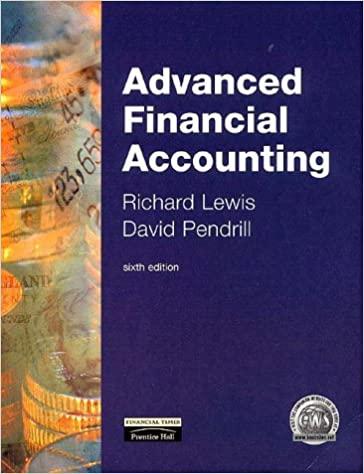Question
Exercise 2 JARDIN, a manufacturer of garden furniture, recently received an order from a chain store to produce a low-budget garden table that JARDIN is
Exercise 2
JARDIN, a manufacturer of garden furniture, recently received an order from a chain store to produce a low-budget garden table that JARDIN is not used to produce. The order has to be delivered within one month. JARDIN is able to produce the low-budget tables using the existing machines and equipment. The employees of JARDIN have a fixed employment contract (fixed wage) and receive 40 EUR/hour. Every 1 000 machine hours, a specialized firm performs the maintenance of JARDINs equipment, which costs 20 000 EUR. Given the limited labor hours, JARDIN is able to produce 500 standard garden tables per month.
Other information:
|
| Standard table | Low-budget table |
| Selling price per unit | 200 EUR | 70 EUR |
| Direct labor cost per unit | 40 EUR | 30 EUR |
| Amount of polyethylene per unit | 0 | 5kg |
| Amount of polypropylene per unit | 8kg | 3kg |
| Number of machine hours per unit | 0.75 | 0.75 |
| Maintenance cost per machine hour | 20 EUR | 20 EUR |
| Allocated central fixed overhead per unit | 10 EUR | 10 EUR |
This month, JARDIN received an order of only 100 standard tables and the management considers to accept the chain stores one-time offer. The chain store wants to buy 500 low-budget garden tables[1] at 70 EUR/table. The low-budget tables are produced using polyethylene and polypropylene. JARDIN does not use polyethylene for its regular production because it has less advantages than polypropylene. However, JARDIN has still
20 000 kg left in its inventory, dating from the time that it was regularly used. The book value of polyethylene equals 1.95 EUR/kg. Polyethylene can be sold to a wholesaler for 2 EUR/kg. JARDIN is able to buy polyethylene at 2.05 EUR/kg. Polypropylene is a resource which is regularly used in JARDINs current production. The current inventory of polypropylene amounts to 1 000 kg with a book value of 6.00 EUR/kg. If JARDIN accepts the special offer, the firm has to replenish its inventory much earlier than expected at an estimated price of 7.50 EUR/kg. Under normal conditions, the purchase price amounts to 7.00 EUR/kg. JARDIN has to order at least 4 000 kg of polypropylene at once.
QUESTIONS:
What should JARDIN decide? What are the relevant costs and revenues concerning this special order?
What should JARDIN decide if the demand for standard tables was 200 instead of 100 tables? Assume that JARDIN anticipates this demand and orders extra polypropylene in time. What are the relevant costs and revenues?
Using this specific situation, define and give an example of
Sunk costs
Opportunity costs
[1] The order concerns 500 low-budget tables. The chain store is not interested in buying a lower quantity.
Step by Step Solution
There are 3 Steps involved in it
Step: 1

Get Instant Access to Expert-Tailored Solutions
See step-by-step solutions with expert insights and AI powered tools for academic success
Step: 2

Step: 3

Ace Your Homework with AI
Get the answers you need in no time with our AI-driven, step-by-step assistance
Get Started


